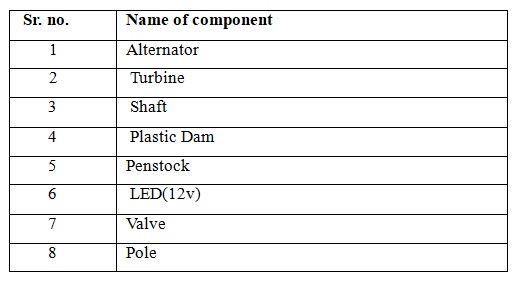Hydro Power Plant
DOI:
https://doi.org/10.54741/asejar.2.3.4Keywords:
power, dam, turbineAbstract
Hydro power plants play a significant role in the generation of renewable energy by harnessing the power of flowing or falling water. This abstract provides an overview of the key components and processes involved in a typical hydropower plant. The abstract begins by explaining the primary purpose of a hydropower plant, which is to convert the kinetic energy of water into electrical energy. It highlights the environmental benefits of hydropower, including its low greenhouse gas emissions and potential for energy storage. The abstract then outlines the main components of a hydropower plant. These typically include a dam or a diversion structure to control the flow of water, a reservoir to store water, a penstock to channel water towards the turbines, and the turbines themselves, which are connected to generators to produce electricity. It mentions the various types of turbines used, such as Francis, Kaplan, and Pelton turbines, depending on the specific site characteristics. Furthermore, the abstract discusses the importance of the transmission system in delivering the generated electricity to consumers and the grid. It highlights the significance of grid integration and the need for effective power management strategies to ensure stability and reliability. Additionally, the abstract touches upon the environmental considerations associated with hydropower plants, such as the potential impacts on aquatic ecosystems and the need for fish passage solutions. It also briefly mentions the concept of pumped storage hydropower, which utilizes excess electricity to pump water from a lower reservoir to an upper reservoir, allowing energy to be stored and later released when demand is high. In conclusion, the abstract emphasizes the role of hydropower plants as a clean and renewable energy source. It highlights the key components, processes, and environmental considerations associated with these plants, showcasing their importance in the global pursuit of sustainable energy generation.
Downloads
References

Downloads
Published
How to Cite
Issue
Section
ARK
License
Copyright (c) 2023 Pardeep Kumar, Sukhvinder Singh, Sunita, Vikas Kumar, Vipin Kumar Ahuja

This work is licensed under a Creative Commons Attribution 4.0 International License.
Research Articles in 'Applied Science and Engineering Journal for Advanced Research' are Open Access articles published under the Creative Commons CC BY License Creative Commons Attribution 4.0 International License http://creativecommons.org/licenses/by/4.0/. This license allows you to share – copy and redistribute the material in any medium or format. Adapt – remix, transform, and build upon the material for any purpose, even commercially.










